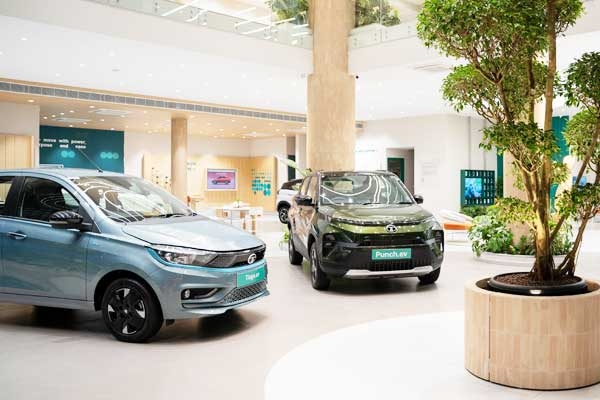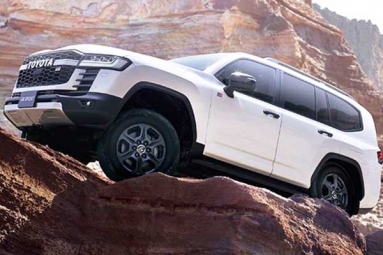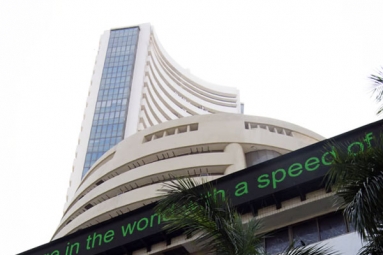
(Image source from: Autocarpro.in)
The demand for electric vehicles (EVs) in India dropped to a 19-month low of 5,733 units in September 2024, a 9% decrease from September 2023 (6,298 units). This reflects the global trend, particularly in Europe, where battery-electric vehicle (BEV) sales saw their largest year-over-year decline since January 2017, at 36% in August. The demand for EVs in India had risen consistently, reaching a high of 9,661 units in March 2024, the last month of the FAME II program. However, since then, the monthly numbers have declined, with 6,630 units in August (down 5% year-over-year) and 5,733 units in September. Tata Motors, the market leader in India's EV segment, sold 3,530 units in September 2024, an 18% decrease from September 2023 (4,320 EVs) and the company's lowest monthly figure since February 2023 (3,919 EVs). As a result, Tata Motors' market share in the electric passenger vehicle (ePV) segment decreased from 68% in September 2023 to 61% in September 2024.
Tata Motors has temporarily reduced the prices of its electric vehicles, the Nexon EV, Punch EV, and Tiago EV, by up to Rs 3 lakh, Rs 1.20 lakh, and Rs 40,000 respectively, until October 31, 2024. Additionally, the company is providing six months of free charging at over 5,500 Tata Power charging stations across the country. In the first nine months of 2024, Tata Motors has sold 45,557 EVs, a 3% increase compared to the same period in 2023. Meanwhile, MG Motor India sold 955 units of the Comet and ZS EV in September, a 7% increase from the previous year but a 32% decrease from August. MG also recently launched its third EV, the Windsor, in the Indian market. The company has a 16.65% market share in September, and its total sales of 11,657 units in the January-September 2024 period are 23% higher than its 2023 sales.
The BaaS program allows customers to buy an electric vehicle without the battery, and instead they can rent the battery and pay based on how much they use it. This reduces the initial cost of buying the electric vehicle, as well as the ongoing expenses over a longer period of time.
Mahindra's electric vehicle sales have increased significantly, with its sole EV model, the XUV 400, seeing a 23% year-over-year rise in September 2024, reaching 443 units. This has given the company a 7.72% market share. Mahindra's year-to-date sales for the first nine months have nearly doubled, reaching 5,108 units, an 85% increase compared to the same period in 2023. The company plans to invest Rs 12,000 crore in its EV program and will have an added manufacturing capacity of around 100,000 units for its upcoming Born Electric vehicles by the end of March 2025.
Meanwhile, BYD India, which sells the Atto 3 SUV, e6 MPV, and Seal sedan, has maintained its fourth position in cumulative EV sales, but dropped to fifth in September 2024 sales, with 161 EVs sold, down 27% from August 2024's 221 units, but up slightly from the year-ago 151 units.
BYD India will release the new eMax 7 MPV on October 8, which is an updated version of the BYD e6. In September 2024, Citroen India had its best-ever sales month, selling 386 units, outperforming the previous high of 336 units in June 2023. Citroen's electric model, the e-C3, is experiencing growing demand, especially from EV fleet operators. The e-C3 has received large orders for over 7,000 units from various companies. By the end of September, Citroen has already achieved 75% of its 2023 annual sales target. Hyundai's Kona EV has been discontinued in India, and the Ioniq 5 EV sales in September were lower than in August, marking Hyundai's lowest monthly EV sales in the past nine months. Hyundai's cumulative EV sales from January to September 2024 are down 26% compared to the same period in 2023.
In September, sales of high-end electric vehicles declined by 14% year-over-year, reaching 209 units compared to 245 units in September 2023. However, the total sales for the first nine months of the year showed a robust 20% year-over-year increase, with 1,928 units sold, up from 1,607 units in the same period the previous year.
With only three months remaining in FY2024, the cumulative retail volume of advanced solar power generation units by the seven OEMs is 1,928 units, a decrease of 714 units from the total 2,642 units in FY2023. BMW India remained the luxury electric vehicle market leader in both September (104 units) and the first nine months of 2024 (797 units), resulting in premium electric vehicle market share of 50% in September and 1% in 2024 led. From March to September. It was 41 percent. Period.
Mercedes-Benz India sold 75 electric vehicles in September 2024, 24 more than in August and the second highest monthly sales of the year after 133 in April. Total sales from January to September 2024 (566 electric vehicles) increased 56% year-on-year (January to September 2023: 329 units), representing a 29% year-to-date increase in luxury car market share. Important for the German automaker's cumulative sales in 2023 exceeded 515 units.
Volvo Auto India sold 15 electric vehicles in September, 18 less than in August. The cumulative sales volume for 9 months was 369 units, and the market share of advanced solar power generation was 19%. In 2023, Volvo sold a total of 570 electric vehicles. Audi India sold 11 electric vehicles last month, reaching total sales of 125 units in the first nine months, up 34 percent year-on-year (January-September 2023: 93 units) and currently up 6.50% compared to the previous year corresponds to the luxury car market.







